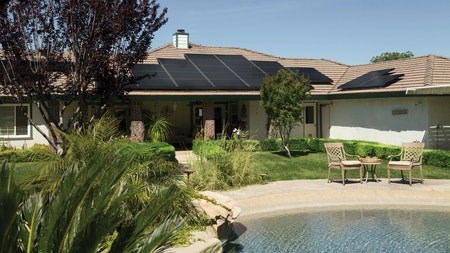Why now is the ideal time to buy property in South Africa.
The dramatic improvement in home-loan approval rates and the current “buyers’ market” have seen more first-time buyers entering the property market. What do these prospective homeowners need to know before they take the plunge?
The FNB Q3 Property Barometer (October 2019) makes for interesting reading. It quotes South African Reserve Bank data, saying that these show “that mortgage advances have grown at a progressively faster pace, recording 4.9% y/y in August – the highest growth since November 2010. In fact, since the beginning of this year, mortgage advances have outpaced average house price growth in South Africa for the first time in since June 2011. Transactions data shows that this has boosted transaction volumes, specifically in the R700k–R1.8m and R1.8m– R3.5m price bands.”
Stian Senekal, of Just Property Midrand says, “It is definitely easier for buyers to qualify for home loans at the moment. We have noticed an estimated 80% success rate in our buyers’ bond approvals this past year and see a trend in clients qualifying for 100% bonds and many at an interest rate close to prime or even below the prime rate in some cases.”
Senekal believes that the costs associated with buying a home, which in the past put many first-time buyers off purchasing, are what have motivated banks to start offering products that assist some buyers to qualify for more than the asking price on the property. As a result, he has noticed that more and more of those looking to buy a property these days are first-time buyers.
“Another reason is the current “buyer's market”, where sellers have to look at market-realistic pricing because buyers are spoiled for choice,” he adds.
Nevertheless, Senekal advises that even if a buyer qualifies for 100% bond, having a reserve of funds in place before buying is an astute move for two reasons: “When authorising a bond, the banks definitely look at what and how you spend your money. Do you have any excess disposable income each month and are you saving some of it? It is important that you can show them you know how to save. It is also always better to put a deposit down on your home purchase.”
Other elements that banks look at are job security and how long you have been with your current employer, which can make securing a home loan difficult for freelancers, the self-employed and commission earners. “Because there is no set income to gauge, banks will probably look at a stricter qualification process,” he warns. “The best advice is to prepare in advance. Take some time to save up a larger deposit, and to ensure that you have proof of monthly income that is fairly stable for a good six months before you apply. Pay your accounts on time and make sure your financial statements and SARS profile reflect a positive outlook. That should do the trick.”
So which banks should first-time home buyers approach? Senekal feels strongly that getting a trusted bond originator to help with the application will secure the best possible home loan and interest rate. “In my experience, bond originators have a far greater success rate than buyers who apply for themselves. The originator will fight for the best deal – which sometimes is not from the buyer's preferred or personal bank.”
The size of the loan will be dependent on the bank, current trends and each individual’s personal financial profile, he says, “although in the past FNB has definitely been very positive in assisting first-time home buyers.”
Just Property Midrand franchisee, Brian van Wijk, notes that buying a property is often the first step in the wealth creation journey. “A wise investment now will be the basis for growth and wealth creation in the future,” he says. “The first-time buyer should therefore acquire as much understanding about buying property and the property market as possible.” To help with this, Just Property has developed a publicly available resource called Your Property Journey, which can be found on www.just.property.
Van Wijk advises researching areas where there is growth in property values or where there is a potential for growth when the market recovers. “And try to purchase a property that will suit your needs for at least ten years, so that you can take advantage of the capital growth,” he adds.
Just Property CEO, Paul Stevens, warns against rushing into an emotional purchase. “Take your time. Consider carefully the advantages and disadvantages of buying sectional title or freehold, as this will have a big impact on the future growth plans you may have. For example, if you are planning a family, and you cannot currently afford a property large enough, consider a freehold property where you could expand the size of the dwelling without having to sell and buy again.”
Shaun Dubois, franchisee of Just Property Pietermaritzburg, agrees. “The costs of purchasing and transferring a property, moving costs and opening utility accounts are expensive. The aim should be to avoid moving and incurring those costs again in less than seven to ten years. So, freehold gives more options. On the other hand, sectional title units are low maintenance, offer great security and generally the banks will finance them easily. Work out what will give you the best capital appreciation and remember that this is a long-term investment.”
Top tips for first-time home buyers:
Lay the right foundations
- Don’t consider buying until you have put away enough to cover transfer and bond costs, especially if you do not qualify for more than a 100% loan.
- It is good to have a deposit. This will also reduce the amount you have to pay back and can lower your interest rate.
- Try to put down a larger deposit and only extend your bond for 20 years rather than 30. This will help you save on interest.
- Work with a bond originator to confirm what you can comfortably afford. This is called “pre-qualification” and is a free service! The bond originator will also help you find the best interest rate and home loan possible.
Choose wisely
- Do your research on where you wish to buy, educate yourself on the current trends and market values. Yes, your heart will be involved, but the more you rely on sound financial and market data, the better your investment decision will be.
- Do as much research as possible in order to make a pragmatic decision.
- Do not view every home available. Make a shortlist of the best-priced properties that tick most of your requirements.
- Work with experienced and registered estate agents. They will be able to guide you through the process and negotiate the best deal for all parties. Be responsible
Do not over-extend yourself.
- There are other monthly costs involved in owning a home, such as rates and taxes and in some cases levies as well. There is also maintenance and upkeep. So make sure that you can cover these costs along with your home loan and living expenses.
- Paying slightly extra each month and putting any windfalls into your bond will help reduce the term of your bond repayments.
“Interest rates are relatively low at the moment. It is heartening to see that the banks are upbeat about risk and willing to back this up by granting bonds,” Stevens concludes. “It is a very positive move, and a real opportunity for first time buyers. Just remember to do your homework, and let your head rule your heart.”




